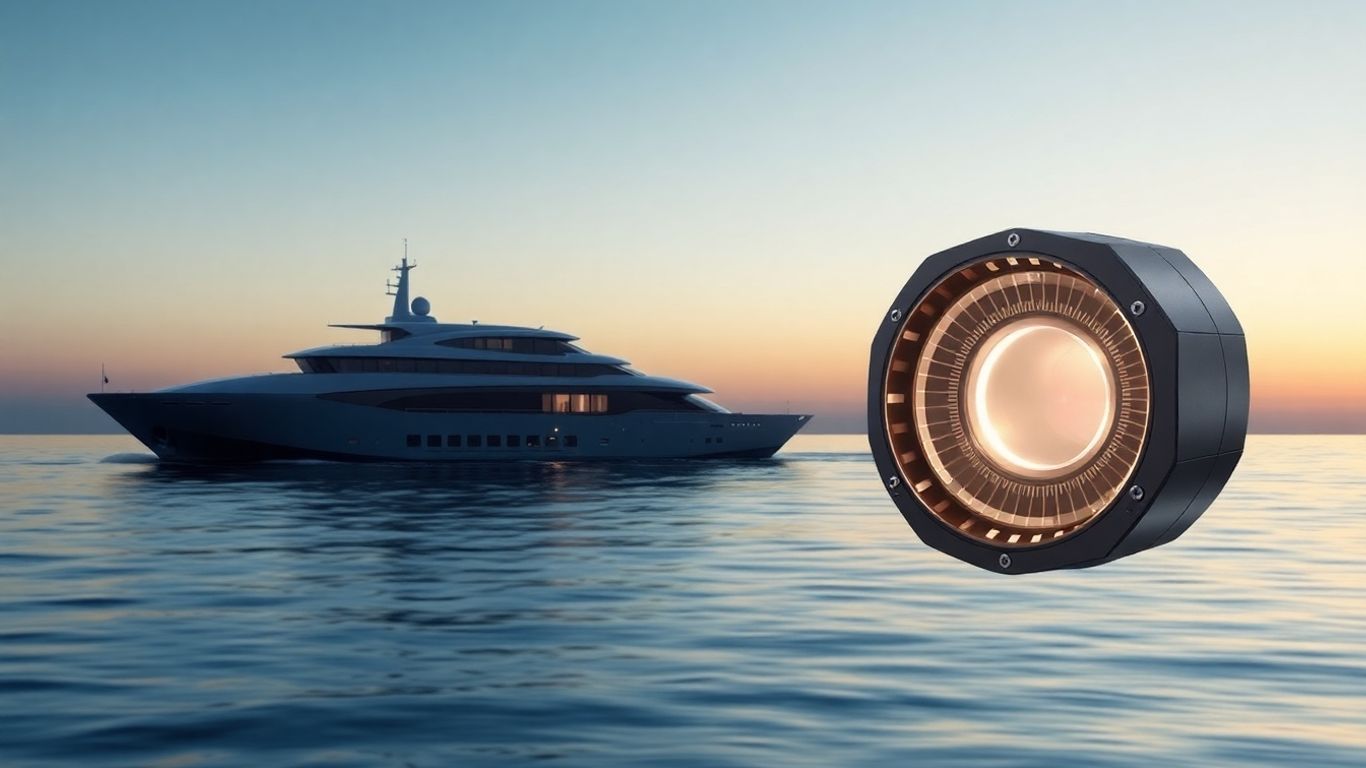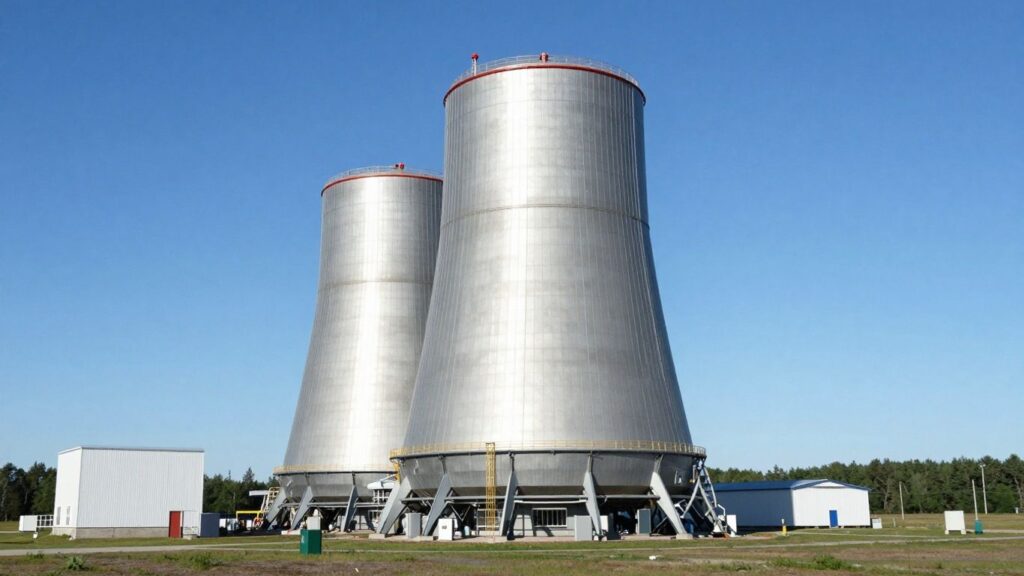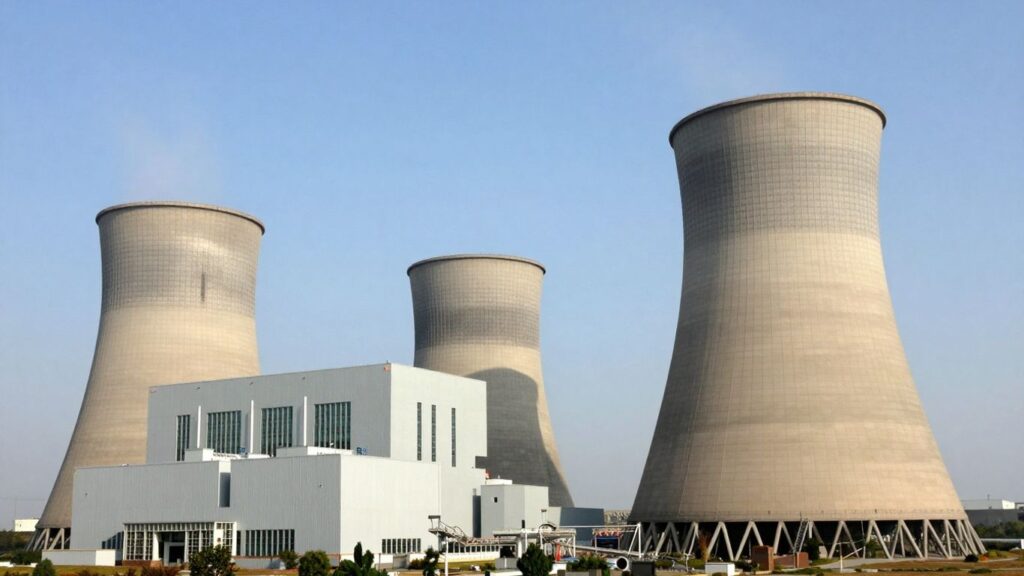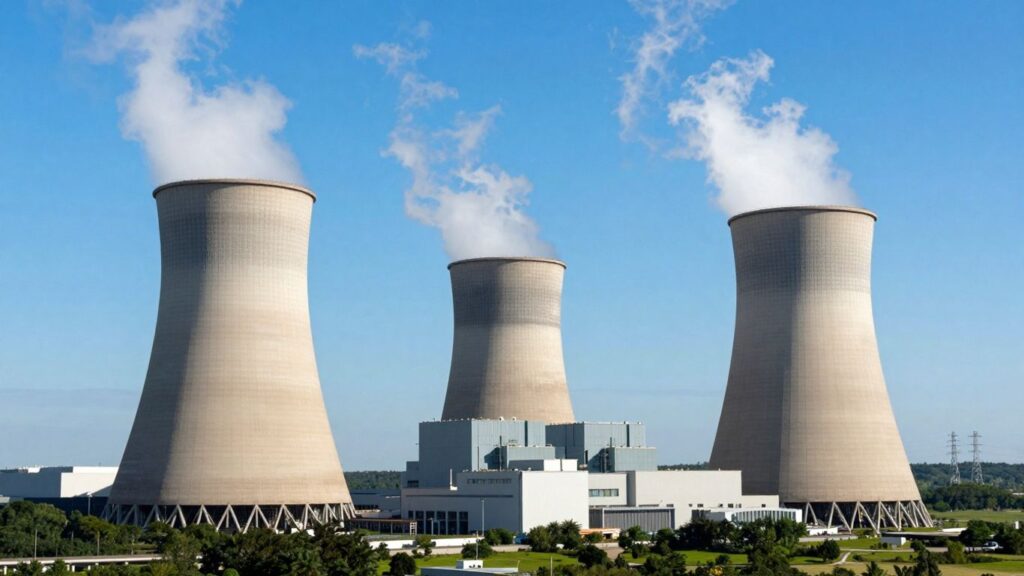Global technology leader ABB and Swedish nuclear developer Blykalla are intensifying their collaboration to accelerate the adoption of small modular reactors (SMRs) within the maritime sector. This strengthened partnership, building on a previous agreement, focuses on leveraging Blykalla’s advanced lead-cooled SMR technology for marine applications, aiming to provide a clean energy solution for the shipping industry.
Key Takeaways
- ABB and Blykalla have expanded their collaboration to focus on maritime SMR deployment.
- The partnership centers on Blykalla’s compact, passively safe SEALER reactor.
- ABB will provide expertise in system integration, power distribution, control, and automation.
- The move aligns with the International Maritime Organization’s efforts to update safety codes for nuclear-powered ships.
Advancing Maritime Nuclear Propulsion
ABB and Blykalla have formalized their commitment through a memorandum of understanding (MoU) to expedite the introduction of lead-cooled SMRs into the maritime industry. This expanded agreement builds upon an initial MoU from October 2024, which concentrated on developing Blykalla’s SMR technology for Sweden’s clean energy objectives. The current focus now explicitly includes maritime applications, reflecting a growing interest in nuclear energy as a power source for ships.
The SEALER Reactor and ABB’s Role
At the heart of this collaboration is Blykalla’s Swedish Advanced Lead Reactor (SEALER). This SMR is characterized by its compact design and inherent passive safety features, which eliminate the need for operator intervention. The SEALER technology was identified as a promising solution for larger vessels within the Nuclear Propulsion for Merchant Ships I (NuProShip I) project. ABB’s contribution will be vital, offering its extensive expertise in system integration, power distribution, control, and automation to ensure the successful implementation of SMRs on board vessels.
Regulatory and Industry Momentum
The enhanced partnership between ABB and Blykalla coincides with significant developments in the regulatory landscape. In June, the International Maritime Organization’s Maritime Safety Committee (MSC 110) endorsed recommendations to revise the Code of Safety for Nuclear Merchant Ships. These amendments are intended to incorporate advancements in nuclear technology, such as SMRs, which have emerged since the code’s initial implementation.
Driving Decarbonization in Shipping
Both companies view SMRs as a crucial element in the maritime industry’s decarbonization efforts. Juha Koskela, President of ABB’s Marine & Ports division, stated that the collaboration will help advance the viability of SMRs in maritime applications, enabling innovative ship designs that can significantly reduce emissions compared to conventional carbon-based fuels. Blykalla CEO Jacob Stedman emphasized the unique opportunity to lead in maritime nuclear propulsion, calling the collaboration a critical building block for realizing this vision.
This initiative by ABB and Blykalla represents a significant step forward in exploring nuclear power as a pathway to long-term decarbonization for the shipping sector, aligning with broader industry trends and regulatory advancements.
Sources
- ABB And Blykalla Strengthen Collaboration On Plans For Maritime Small Modular Reactors, NucNet.
- ABB collaborates with Blykalla to deploy nuclear reactors for maritime use, DredgeWire.
- ABB and Blykalla to collaborate on nuclear power technology for maritime industry, gCaptain.
- ABB and Blykalla move to bring nuclear propulsion closer to shipping, Splash247.












